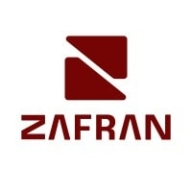


Tenable Nessus and Amazon Inspector are critical tools in the vulnerability assessment category. Users express higher satisfaction with Tenable Nessus for its robust feature set, whereas Amazon Inspector is favored for its integration capabilities and scalability, especially in AWS environments.
Features: Tenable Nessus offers comprehensive vulnerability scanning, continuous monitoring, and extensive plugin support, catering to various security issues. Amazon Inspector automates vulnerability management for AWS environments and seamlessly integrates with AWS services, making it appealing for cloud operations. Its ability to automatically assess compliance aspects distinguishes it from the more network-centric Nessus.
Room for Improvement: Tenable Nessus could improve in its cloud-specific integration capabilities, as it is more network-focused. The user interface might be simplified for better user experience. Pricing models could be more flexible. Amazon Inspector could enhance its feature set outside AWS environments to appeal to a broader audience. Improvements in user interface design could help users more easily navigate the tool. Enhanced support for hybrid cloud environments would increase its versatility.
Ease of Deployment and Customer Service: Tenable Nessus is recognized for its straightforward deployment process, making it suitable for businesses that need minimal disruption. Its customer service is more personalized, benefiting direct user interactions. Amazon Inspector benefits from native AWS integration, which simplifies setup for AWS users, and the broad support infrastructure from AWS enhances customer support.
Pricing and ROI: Tenable Nessus is known for competitive pricing with substantial feature offerings, though it may involve higher initial setup costs. Amazon Inspector's pay-as-you-go model aligns costs with usage, beneficial for dynamic AWS environments. The long-term ROI potential for Inspector is significant due to its integration and automation benefits, especially for businesses heavily relying on AWS.



Zafran Security integrates with existing security tools to identify and mitigate vulnerabilities effectively, proving that most critical vulnerabilities are not exploitable, optimizing threat management.
Zafran Security introduces an innovative operating model for managing security threats and vulnerabilities. By leveraging the threat exposure management platform, it pinpoints and prioritizes exploitable vulnerabilities, reducing risk through immediate remediation. This platform enhances your hybrid cloud security by normalizing vulnerability signals and integrating specific IT context data, such as CVE runtime presence and internet asset reachability, into its analysis. No longer reliant on patch windows, Zafran Security allows you to manage risks actively.
What are the key features of Zafran Security?
What benefits can users expect from Zafran Security?
In industries where security is paramount, such as finance and healthcare, Zafran Security provides invaluable protection by ensuring that only exploitable vulnerabilities are addressed. It allows entities to maintain robust security measures while allocating resources efficiently, fitting seamlessly into existing security strategies.
Amazon Inspector is an automated security assessment service that helps improve the security and compliance of applications deployed on AWS. Amazon Inspector automatically assesses applications for exposure, vulnerabilities, and deviations from best practices. After performing an assessment, Amazon Inspector produces a detailed list of security findings prioritized by level of severity. These findings can be reviewed directly or as part of detailed assessment reports which are available via the Amazon Inspector console or API.
Amazon Inspector security assessments help you check for unintended network accessibility of your Amazon EC2 instances and for vulnerabilities on those EC2 instances. Amazon Inspector assessments are offered to you as pre-defined rules packages mapped to common security best practices and vulnerability definitions. Examples of built-in rules include checking for access to your EC2 instances from the internet, remote root login being enabled, or vulnerable software versions installed. These rules are regularly updated by AWS security researchers.
Tenable Nessus provides an efficient vulnerability management system with swift deployment and comprehensive scanning capabilities, making it an ideal choice for organizations seeking to enhance their security posture through effective threat detection and mitigation strategies.
Renowned for its top-tier vulnerability detection, Tenable Nessus offers a robust platform that integrates effortlessly across systems, enhancing threat management through automation, real-time monitoring, and customizable scanning options. Its broad asset coverage, including network devices and applications, coupled with ease of deployment, positions it as a go-to option for risk assessment and compliance. Organizations value its extensive reporting features and database, although they suggest enhancements in reporting formats and false positive detection. A more intuitive interface, improved cloud support, and competitive pricing models are sought after to cater to evolving enterprise needs.
What are the key features of Tenable Nessus?In industries such as finance, healthcare, and tech, Tenable Nessus is implemented for scanning internal and external networks, identifying risks, and ensuring data protection compliance. Organizations conduct regular scans to detect security vulnerabilities in servers and databases, leveraging its capabilities to strengthen their security frameworks while managing cloud infrastructures and enterprise networks efficiently.
We monitor all Vulnerability Management reviews to prevent fraudulent reviews and keep review quality high. We do not post reviews by company employees or direct competitors. We validate each review for authenticity via cross-reference with LinkedIn, and personal follow-up with the reviewer when necessary.